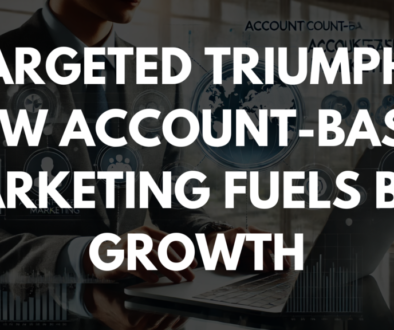Exporting to Germany: Key Business Tips & Market Insights
Exporting to Germany: Key Business Tips & Market Insights is essential for anyone looking to tap into Europe’s largest and most dynamic market.
Expanding your business into Germany is an exciting and rewarding venture, offering immense opportunities for exporters and international companies. After World War II, Germany was divided into the Federal Republic of Germany (FRG) and the German Democratic Republic (GDR), with the FRG playing a significant role in western economic and security organizations.
This business guide in Germany explores its robust economy, known for a strong industrial sector and significant contributions to global trade, providing a fertile ground for growth. To enter the German market successfully, businesses need to understand the local economic landscape and embrace the nuances of German business culture. For companies aiming to succeed with business in Germany, preparation and adaptability are key.
In this guide, we’ll provide key business tips and market insights, discuss Germany’s market dynamics, and highlight how B2B Export Services can simplify the process to help you export in Germany effectively.
Business Culture and Etiquette Tips in Germany
Communication Style
In business in Germany, clear and direct communication is highly valued.
Ambiguity and vagueness can create mistrust in professional relationships. To successfully enter the German market, ensure that your proposals and presentations are well-structured, concise, and to the point.
This approach builds trust with German companies and fosters strong professional connections, which are essential for those looking to export in Germany.
Punctuality: Key to Success in the German Market
Time management is a cornerstone of German business etiquette.
Being punctual for meetings, appointments, and conferences demonstrates respect and professionalism. Lateness is often perceived as a sign of unreliability and can harm your reputation in business in Germany. This emphasis on punctuality spans across all sectors of the German economy, including manufacturing and services, making it critical for companies aiming to enter the German market.
Business Meetings in Germany: Structured and Formal
Meetings in Germany are formal and adhere to a strict agenda.
Each participant is given an opportunity to speak, and interruptions are considered impolite. To make a strong impression in business in Germany, thorough preparation is essential, as you’ll be expected to contribute fact-based insights and actionable proposals.
This structured approach reflects the professionalism that defines the German business environment, which is vital for companies seeking to export in Germany.
Dress Code: Professionalism Matters in Germany
When engaging in business in Germany, conservative attire is expected.
Men should wear formal suits, while women should choose business suits or conservative dresses. Your attire communicates your professionalism, especially in high-stakes environments like finance and manufacturing.
Dressing appropriately is crucial for those looking to enter the German market and establish credibility.
Greeting Etiquette: First Impressions Matter in Germany
A firm handshake with direct eye contact is the customary greeting in Germany.
Titles hold great importance, so address individuals using their academic or professional title followed by their surname. This formality is prevalent across western and eastern Germany, reflecting the country’s unified business culture since German reunification.
Adhering to these customs is essential for building strong relationships in business in Germany
Gift Giving
Unlike in some cultures where exchanging gifts is common in business, in Germany, gift-giving is not typical and is generally reserved for personal relationships.
Focus more on delivering quality and punctuality in your business dealings. This emphasis on efficiency and reliability is a hallmark of Germany’s economic growth and its position as a major exporter.
Snapshot of the German Market
Germany’s gross domestic product (GDP) growth consistently positions it as Europe’s largest economy and the world’s fourth-largest by nominal GDP.
The country’s industrial production, especially in the manufacturing sector, plays a crucial role in its economic strength. Key regions such as North Rhine-Westphalia and cities like Stuttgart and Munich are industrial powerhouses, hosting companies like Mercedes Benz.
In recent years, the German market has also been shaped by global trade dynamics and climate change policies.
Germany’s commitment to renewable energy sources and reducing reliance on natural gas is reshaping its industrial landscape. Additionally, government spending and economic policies from the Federal Ministry aim to sustain growth and manage inflation rates. Understanding the nuances of the German business environment is key to success.
Whether you are dealing with medium-sized enterprises or major exporters, being well-prepared and culturally aware will enhance your chances of success.

Market Overview: Germany
Economic Landscape of the German Economy
Germany, the powerhouse of Europe and a pivotal member of the European Union, is renowned for its innovation and engineering excellence.
The establishment of the German Empire in 1871 marked a significant shift in Germany’s political and economic landscape, leading to rapid industrialization and changes in governance. As Europe’s largest economy and the third-largest economy in the world, Germany boasts a diversified industrial base. The German economy is particularly strong in sectors such as automotive, mechanical engineering, chemical, and electronics.
Germany’s gross domestic product (GDP) reflects its status as a major global economic player, with significant contributions from government spending and industrial production.
Main Industries and German Exports
The backbone of the German economy is its automotive industry, home to giants like Volkswagen, BMW, and Mercedes-Benz.
This sector is a major exporter, contributing substantially to German exports and global trade. Government policies and economic strategies significantly impact the labour market, influencing employment levels and workforce dynamics in Germany. Other significant sectors include industrial machinery, chemical products, and electrical equipment.
German companies are leaders in these fields, driving economic growth and innovation.
The Mittelstand, comprising small to medium-sized enterprises (SMEs), plays a crucial role in the German market. These companies are the lifeblood of the economy, known for their specialization and high-quality products.
The manufacturing sector, supported by robust research and development, offers numerous opportunities for collaboration and growth.
Regional Business Hubs
Germany’s regional business hubs each have distinct strengths.
Berlin, the capital, is celebrated for its vibrant startup ecosystem and innovation. During the Nazi era, Germany’s trade policies and economic strategies favored Southern Europe over Western Europe and North America, impacting its wartime economic self-sufficiency efforts. Munich is renowned for its engineering prowess and automotive industries.
Frankfurt, home to the European Central Bank, is a global hub for finance and business services.
Other notable regions include North Rhine-Westphalia, a significant industrial area, and the historically important regions of East Germany and West Germany, which have seen substantial economic development since German reunification. Germany’s strong economic landscape, diverse industries, and regional hubs make it a critical player in the global market.
Its emphasis on innovation, engineering excellence, and robust SMEs ensures continued economic growth and a leading role in global trade.

Exporting to Germany: Key Business Tips & Market Insights – Conclusion
Navigating the German market with a comprehensive business guide in Germany is not just an opportunity but a strategic move for any company looking to expand internationally.
Germany, known as Europe’s largest and strongest economy, offers an incredible platform for businesses aiming to enter the German market. Its robust industrial base, advanced infrastructure, and central location in Europe make it an ideal destination for those seeking to establish a successful business in Germany. Germany’s economy thrives on its manufacturing and finance sectors, both of which significantly contribute to its gross domestic product (GDP).
From globally recognized brands like Mercedes-Benz to countless medium-sized enterprises (Mittelstand), Germany has consistently demonstrated its leadership in international trade.
For businesses looking to export in Germany, the opportunities are vast but require careful planning and a deep understanding of the market dynamics. This is where a detailed business guide in Germany becomes invaluable. One of the key aspects of thriving in Germany is appreciating its economic structure and business culture. To successfully enter the German market, businesses need to align their strategies with local expectations, which often emphasize punctuality, precision, and a strong adherence to rules.
The German labor market, renowned for its highly skilled workforce, presents a significant advantage to companies aiming to establish business in Germany.
However, navigating regulatory frameworks, such as tax policies and labor laws, requires expert guidance, which a robust business guide in Germany can provide. Germany’s economic resilience is further highlighted by its ability to adapt to global challenges. Its industrial production and export capabilities remain unmatched, making it a prime target for companies planning to export in Germany.
The country’s strategic location in the heart of Europe provides easy access to neighboring markets, amplifying the benefits for businesses that choose to expand their footprint here.
Moreover, regional hubs like North Rhine-Westphalia, Bavaria, and cities such as Berlin, Munich, and Frankfurt offer distinct opportunities for growth, catering to a wide range of industries. Cultural highlights like the German Christmas markets not only showcase the country’s rich traditions but also reflect its vibrant consumer market and purchasing power. These insights are crucial for businesses aiming to succeed in business in Germany.
Understanding Germany’s role in the European Union, along with its trade relationships with major economies like the USA, China, and Japan, further strengthens a company’s ability to strategically enter the German market.
A reliable business guide in Germany also emphasizes the importance of preparing for market entry by understanding economic indicators such as inflation rates, energy costs, and government spending. These factors play a pivotal role in shaping the business environment and can significantly influence the success of companies seeking to export in Germany. Historical milestones like German reunification continue to impact its economic framework, making it essential for businesses to stay informed and adapt accordingly.
In conclusion, businesses that aim to thrive in Germany must adopt a well-researched and strategic approach.
By leveraging a detailed business guide in Germany, companies can unlock the potential of this dynamic market and position themselves for long-term success. With the right insights into Germany’s industrial strengths, market trends, and cultural nuances, businesses can confidently enter the German market and achieve sustainable growth. Whether you’re an established multinational or a small business exploring international opportunities, Germany offers the ideal landscape for expansion.
Use this business guide in Germany as your roadmap to navigate the complexities of business in Germany and make your mark in this thriving economy.




